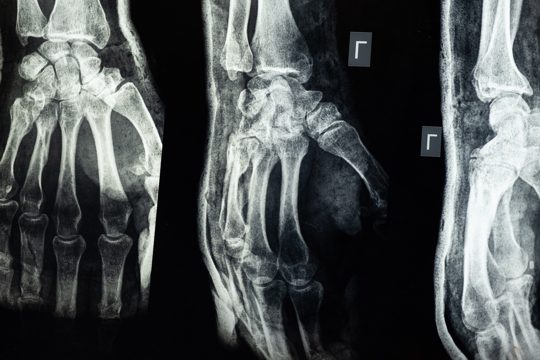What Is a Geriatrician?
A geriatrician is a doctor who specializes in the care of older adults. The primary focus of geriatricians is to identify and treat age-related conditions and diseases.
They also provide preventive care, comprehensive assessments, and individualized treatment plans to help older adults manage their health and maintain independence for as long as possible. Geriatricians understand the unique needs of aging adults and are well-versed in the wide range of physical, psychological, and social issues that can affect an elderly person's well-being. They strive to meet the specialized needs of their elderly patients by taking an individualized, holistic approach to care.

In addition to managing age-related conditions, geriatricians may provide assistance with daily living activities, such as bathing and grooming, exercise, and nutrition. They also work to identify and address risk factors for falls and other age-related conditions, as well as to help patients with end-of-life planning.
Geriatricians are committed to helping older adults live with dignity and respect, and they work hard to ensure that their elderly patients receive the highest level of care possible.
Reasons to See a Geriatrician
There are many reasons why older adults may need to see a geriatrician, including: Cancer, Diabetes, Depression, Insomnia, Osteoporosis, and Medication Matters Most. Geriatricians are also able to help with impairments in activities of daily living, falls, memory problems, and other age-related diseases.
Furthermore, they can help with the management and coordination of care for complex medical and psychosocial problems, and can provide expertise in the diagnosis and management of diseases that are more common in older adults. They also have specialized training in recognizing and treating the impact of multiple chronic conditions, the unique challenges of aging, and the risks associated with long-term care and end-of-life care.

In addition, they can provide support for older adults’ decision-making related to advance care planning, medical decisions, and family communication. Geriatricians are also trained to identify and address the unique social needs of older adults, including social isolation, difficulty with transportation, and financial challenges.
They are a valuable resource for older adults and their families as they navigate the challenges of aging and the associated health risks.
Cancer
Older adults are more likely to develop certain types of cancer. Geriatricians are knowledgeable about the types of cancers that are more common in older adults and can help them receive the best possible treatment.
Geriatricians understand how aging can affect the body and can provide tailored treatment plans for older adults with cancer. They are well-informed about the risk factors associated with cancer in older adults, and can provide advice on how to reduce the risk of developing cancer.

They are also knowledgeable about the latest treatments and medications available to help minimize the side effects of cancer treatments. Additionally, geriatricians are able to identify any additional health issues that may be related to the cancer, and provide support to help older adults manage these issues.
With the help of a geriatrician, older adults can receive individualized treatment and care to ensure that they receive the best possible care for their cancer.
Diabetes
Geriatricians can help older adults manage their diabetes. They can help design an individualized treatment plan that includes diet, exercise, and medications to help keep blood sugar levels under control.
Geriatricians can be an invaluable resource for older adults living with diabetes. They can create a personalized plan that is tailored to the individual, taking into account their medical history, lifestyle, and specific needs. This plan typically includes diet, exercise, and medications that are designed to help keep blood sugar levels within the desired range.

In addition, geriatricians can provide education and advice on lifestyle modifications that can help contribute to diabetes management, such as increasing physical activity, avoiding high-sugar foods, and monitoring blood sugar and cholesterol levels. Furthermore, they can provide support and guidance to help ensure that the treatment plan is successful, and can also monitor for any side effects or complications that may occur.
Ultimately, geriatricians are an invaluable resource for those seeking to manage their diabetes, providing comprehensive care that enables them to lead a healthy, active lifestyle.
Depression
Depression is a common problem in older adults, yet it is often underdiagnosed and untreated. Geriatricians are specially trained to recognize the signs of depression and provide treatments that can help.
Depression in older adults can manifest itself in a variety of ways, from physical to psychological symptoms. For some, physical health issues such as chronic pain, fatigue, and digestive problems can be a sign that depression may be present. Other psychological symptoms can include feelings of sadness or hopelessness, low self-esteem, loss of interest in activities, and difficulty concentrating and making decisions. It is important to note that depression in older adults can also be accompanied by changes in sleeping patterns, appetite, and weight.

Geriatricians are uniquely trained to recognize and address the signs of depression in older adults. They are equipped to provide treatments that are tailored to the individual patient's needs.
These treatments can include medications, psychotherapy, lifestyle changes, or a combination of the three. Additionally, geriatricians can offer support to families and caregivers to ensure that older adults with depression are receiving the care they need. By recognizing the signs of depression in older adults and providing appropriate treatments, geriatricians can help improve the emotional and physical health of their patients.
Insomnia
Insomnia is a common complaint among older adults. Geriatricians can help diagnose and treat insomnia, whether it is due to an underlying medical condition or simply due to age-related changes.
It is important to get to the root of the problem as untreated insomnia can cause a variety of issues such as fatigue, decreased concentration, and elevated stress levels. Treatments can vary depending on the cause, but may include lifestyle changes such as avoiding caffeine or alcohol, exercising regularly, and establishing a consistent sleep schedule. In some cases, medications may also be prescribed.

However, medications are not always the best solution as they can be habit-forming or have side effects. Therefore, it is important to talk to a geriatrician to determine the best course of treatment for insomnia.
Behavioral therapies and relaxation techniques, such as yoga or mindfulness meditation, may also be used to help improve sleep. Lastly, it is important to remember that insomnia in older adults can be managed, and a geriatrician can provide the expertise and guidance needed to find the right solution.
Osteoporosis
Osteoporosis is a common age-related condition that can increase the risk of fractures. Geriatricians can help diagnose and treat osteoporosis to reduce the risk of fractures.
There are also certain lifestyle changes that can help reduce the risk of fractures associated with osteoporosis. These include regular physical activity, eating a balanced diet rich in calcium and vitamin D, and quitting smoking.

Additionally, avoiding excessive alcohol consumption and taking certain medications can be beneficial in decreasing the risk of fractures. It is also important to have regular bone density screenings to monitor bone health and detect any changes in bone density early on.
Doing so can help to ensure timely treatment and potentially reduce the risk of fractures associated with osteoporosis.
Medication Matters Most
Geriatricians can help older adults manage their medications. They can help make sure that prescribed medications are safe and effective and that they do not interact with each other in a harmful way.
Furthermore, geriatricians can help seniors understand the purpose of the drugs, how to take them correctly, and any possible side effects. They can also provide education on how to cope with the changes that can be brought on by age-related issues and medications. Geriatricians can also provide support and advice to help ensure that seniors are taking their medications correctly and that any drug-related problems are addressed.

Additionally, they can recommend lifestyle modifications to help seniors manage their medications and their overall health. This could include dietary changes, exercise, and other lifestyle modifications.
In some cases, geriatricians may also suggest alternative treatments such as herbal remedies, dietary supplements, or other natural treatments to complement or replace medications. Ultimately, geriatricians provide a valuable service to older adults, helping them to manage their medications and maintain their health.
Conclusion
Geriatricians are specially trained to provide comprehensive care and treatment for older adults. They can help diagnose and manage age-related conditions such as cancer, diabetes, depression, insomnia, osteoporosis, and medication matters most.
If you or a loved one is an older adult, a geriatrician can help you manage your health and maintain your independence. Geriatricians have a special expertise in aging and can help diagnose and treat age-related issues such as cancer, diabetes, depression, insomnia, osteoporosis, and medication management. They are dedicated to helping older adults maintain their health and independence, and can provide comprehensive care to meet the unique needs of this population.

Through their evidence-based approach to care, geriatricians are able to identify and address age-related health risks and conditions. They can also develop individualized treatment plans, coordinate care with other providers, and provide the support needed to help older adults manage their chronic conditions.
From preventive care to end-of-life planning, geriatricians strive to improve the quality of life of older adults and help them to remain as independent and healthy as possible.
About us
Welcome to SeniorCaresHub! Welcome to our comprehensive senior care destination! We pride ourselves on being a trusted resource for all things related to caring for aging loved ones. We understand the unique needs and challenges that come with senior care, and our mission is to provide you with the information, resources, and support you need to confidently navigate this journey and help you provide the best possible care for your aging loved one.

